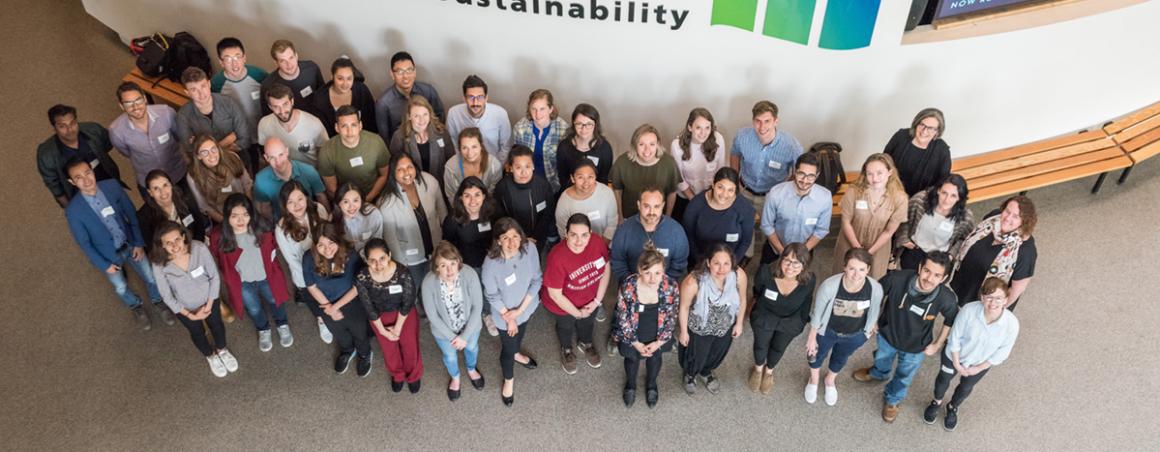

Master of Public Policy and Global Affairs Alumnus Reagan Rockzsfforde recently had the opportunity to participate in UBC Sustainability’s Scholars Program, which is designed to provide graduate students with some hands-on experience with work regarding sustainability.
The policy project that Reagan participated in provided first-hand experience of applying the principles of policy analysis and policy design. This project allowed him to examine the policy problem of energy efficiency and propose a program that could improve participation rate among households. Specifically, he recommended a behavioural-based approach that targets the attitude and perception of residents toward energy consumption. Part of the project was collaborative engagement with key stakeholders including utility companies and community-based groups. As a result, this project further improved his stakeholder engagement skill, which is very vital in shaping and informing the policy process.
Project Summary
Energy efficiency is advanced by encouraging investment in efficient products and technologies through incentives and/or by influencing people to change their behaviour through insights drawn from social and behavioural sciences. Review of existing studies, program evaluations and best practices employed by current programs reveal that governmental policy approaches on energy efficiency has been shifting toward the integration of behavioural-based approach to improve participation.
This analysis proposes a behavioural program in the District of West Vancouver that integrates three key dimensions: community-based, outreach and competitions. The strength of such program relies on its powerful potential—and its long-term benefit—of behavioural change through nudging and motivating individuals to set energy-saving goals and take actions to achieve them. In addition to significant energy savings, this approach also offers a cost-effective solution to increase uptake among households. It also contributes to a community’s overall vitality through its more inclusive, participatory and interactive approach.
However, it should be noted that a behavioural program is not a replacement for incentive-based programs. Rather, it is a complementary program that supports existing programs in improving the level of participation by directly targeting people’s behaviour, which incentive-based programs may fail to adequately address.
The program’s design should focus on four key components to become effective. First, the District of West Vancouver should allocate adequate funding to sustain the program from its design and implementation to its evaluation. Second, the District should ensure that such program include additional incentives that are relatively affordable, but motivating like bonus upgrade rebate, assessment cost subsidy and a reward point system.
Third, the behavioural program should also incorporate marketing strategies that maximize reach and impact by focusing on market segmentation and messaging. Finally, an evaluation of the program should be conducted by collecting participation, consumption and cost data throughout its first year of implementation. These components are vital to tapping the full potentials of a behavioural-based program and to optimizing the desired energy efficiency outcomes.


